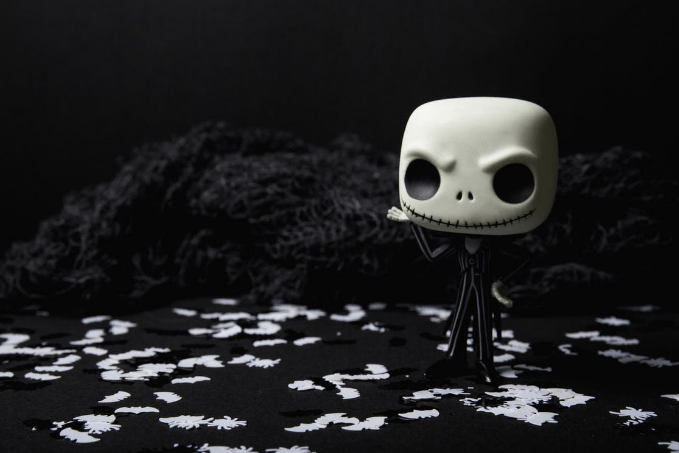Most parents find it disturbing to waking up to the sounds of a child crying, particularly when attempting to console their child is met with a noisy face and flickering extremities. It’s not an alarm; it’s horror at night.
Although night-time terror moments might feel prolonged and exhausting for parents, the episodes will typically only last a few minutes and then your child will quickly fall into sleep again.
Parents also have night terrors issues and worries. Knowing the causes, implications, and variations of other irregular sleep patterns will allow parents to understand these episodes and how their child can be better-taken care of.
What Is A Night Terror?
Sleep terrors are Screaming episodes, deep terror, and screaming during slumber. Often known as night terrors. Sleep terror is like parasomnia — it happens unwantedly during sleep, like sleepwalking, sleep paralysis, sleeping disorder, etc. An episode of sleep terror normally lasts from seconds to a few minutes.
Nearly 40% of children and far fewer adults are affected by sleep terrors. Sleep terror is typically not a cause for alarm, but fearsome. Most children conquer their puberty with sleep terror.
The terror of sleep can require treatment if it causes the inability to sleep problems or if it poses a safety risk.
Symptoms
Sitting in bed and screaming is often the first sign of horror at night.
You can also:
- Screaming or crying
- Empty
- Knockin bed
- Breathe quickly
- With a higher heart rate
- Blush and sweat
- Looks awkward
- Wake up, jump to bed, or run around the room.
If you are trying to stop your partner or family from running or jumping, act aggressively.
Night or sleep terror usually occurs early in the first half of your sleep period. This is when you are in stages 3 and 4 with slow eye movement sleep (NREM). It rarely occurs twice a day.
Terrors usually last from a few seconds to a minute but can take up to 10 minutes or more. After a night of horror, people usually lie down and fall asleep without remembering the episode when they woke up in the morning.
It causes or trigger
Sleep disturbances are classified as side sleep problems, which are unwanted behaviors or experiences during sleep. Fear of sleep is a disorder, which means it occurs during sleep N3, the deepest stage of slow eye movement sleep (NREM). Sleepwalking is another NREM disorder that can occur with cruel sleep.
A variety of factors can contribute to sleep anxiety, including:
- Insomnia and excruciating fatigue
- stress
- Sleep disturbance, travel interruption, or sleep
- Heat
Sometimes sleep disturbances can be caused by underlying causes that interfere with sleep, such as:
- Sleep respiratory disorders are a group of disorders that involve abnormal breathing during sleep, the most common being obstructive sleep apnea.
- Restless legs syndrome
- Specific drugs
- Mood disorders such as depression and anxiety.
- Alcohol use in adults
How Are They Diagnosed?
Adult nightmares are difficult to diagnose because they sometimes occur irregularly. People often don’t remember them. But if you think you have it, or if someone else finds you have it, make an appointment with your doctor.
You may be asked to keep a sleep diary for a short period to rule out lack of sleep or other problems. Sleeping with your partner can provide you with information about the episode. To minimize the potential spread, ISPs will ask the following questions:
- About your health record
- Do you use substances
- Have a family history of sleepwalking, night horror, or other sleep problems
- When faced with stressful situations at work or home
- All mental symptoms you may have
- Have you ever been treated for mental disorders?
- If you have symptoms of breathing problems
- If you are taking medicine or using herbal remedies, especially for sleep
- If you have ruled out all possible medical causes, including other sleep disorders, you may be referred to a sleep specialist if your symptoms significantly affect your sleep quality.
Nightmares Versus Night Terrors
Nightmares are disagreeable or scary dreams which cause emotional distress. In comparison to night terrors, during sleep in REM nights typically occur without physical or vocal behavior. The specifics or emotions of the nightmare are always recalled and some can even transform into recurring dreams.
In childhood, both nightmares and night terrors started. It is estimated that 10% to 50% of children between 3 and 5 years of age have nightmares serious enough to upset their parents or carers. While night terrors are known to be less frequent, they are not well recorded. Generally speaking, the prevalence was 1-6.5 percent among girls.
Treatment
Night terrors don’t always need treatment. However, it is worth taking a look at the following:
- Sleep terrors negatively affect you, your partner, or your relationship
- You often wake up without a break
- Episodes negatively affect normal activities or daily life.
- Your actions during the episode (such as running or jumping in bed) can harm you or your partner.
To treat terrors effectively, it is important to learn more about the causes of a sleep terror. Handling these cases reduces the number of episodes and can even prevent them entirely.
Developing good sleep habits
Getting regular sleep is a good starting point. You might think getting enough sleep regularly is enough to fight night terrors. Avoid the use of electronic devices, work, or irritating activities before going to bed. Instead, meditate, relax in the bath, or read a book. Avoiding caffeine and limiting alcohol intake at the end of the day can also help reduce episodes.
Ask someone to wake you up
If night terrors occur at about the same time, try to wake up usually 15 minutes before they happen. Stay awake for a few minutes before going to sleep again. You can use the alarm or ask your partner or family to wake you up.
See the therapist
In some cases, night terror can be a sign of stress, trauma, anxiety, depression, or other mental problems. If you think nothing is working, seek the help of a therapist. It can help you identify critical issues and develop new management tools. Development of new management tools. All of this will help with organic feedback, hypnotics, and cognitive behavior.
Safe sleeping environment
All doors and windows are closed and locked at night. Consider hurting. Eliminate the risk of going out and get rid of vulnerable and dangerous objects.
Stress relieving
Figure out what’s causing your stress and how you can relieve it. If your child has sleep terrors, ask them to tell you everything that is bothering the child and discuss it.
Sleep more
Lack of sleep can be the cause, so go to bed early or take a nap in the afternoon. It can also be helpful to do a comfortable routine before going to bed, such as a warm bath or a light reading before bed.
Find a Pattern
Keep a sleep journal and record how often and when atrocities occur. If the night terror is annoying and periodic, it is advisable to wake up 15 minutes before the child wakes up, wake them up for 5 minutes, and put them back to sleep.
You may check out our article about what a dream journal is for more information.
Sleepwalker? Take these steps
If you’re a sleepwalker, night terrors can be life-threatening for you. To reduce the risk of suffering a fatal injury, make sure to follow these tips.
- Make sure to remove sharp objects from your bedroom and cover any hard edges to avoid bruises and cuts.
- Lock and shut down windows as you can unknowingly open them during an episode of a night terror.
- Got bunk beds in your room? Find an alternative because they make it easy for you to fall when experiencing a terror issue.
- Keep the doors locked as you can wander from your living space. Yes, that includes the main door of your home. Another idea is to use an alarm system at the front door or the bedroom to alert you when you’re about to step foot outside your residence.
What about medicine?
Medicines to cure night terrors are mostly anti-depressants, which many adults want to steer clear from. The best way to address the problem is to make changes to your sleeping routine. That said, there’s no harm in seeking your healthcare provider’s advice on how to get back to sleeping without interference.
Conclusion
Sleep terrors are short, scary episodes that can cause you to cry or wake up from sleep. It is more common in children, but it can also affect adults. No one knows the exact cause, but several factors can play a role.
If you experience frequent night terrors or have trouble coping with them, make an appointment with your doctor first. It can help narrow down potential causes or find a sleep therapist or therapist.



